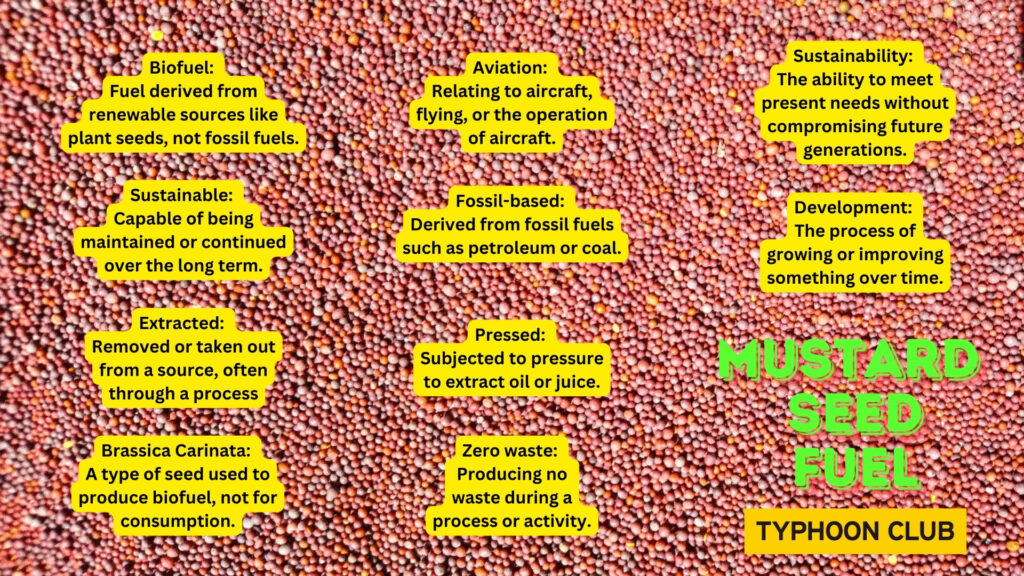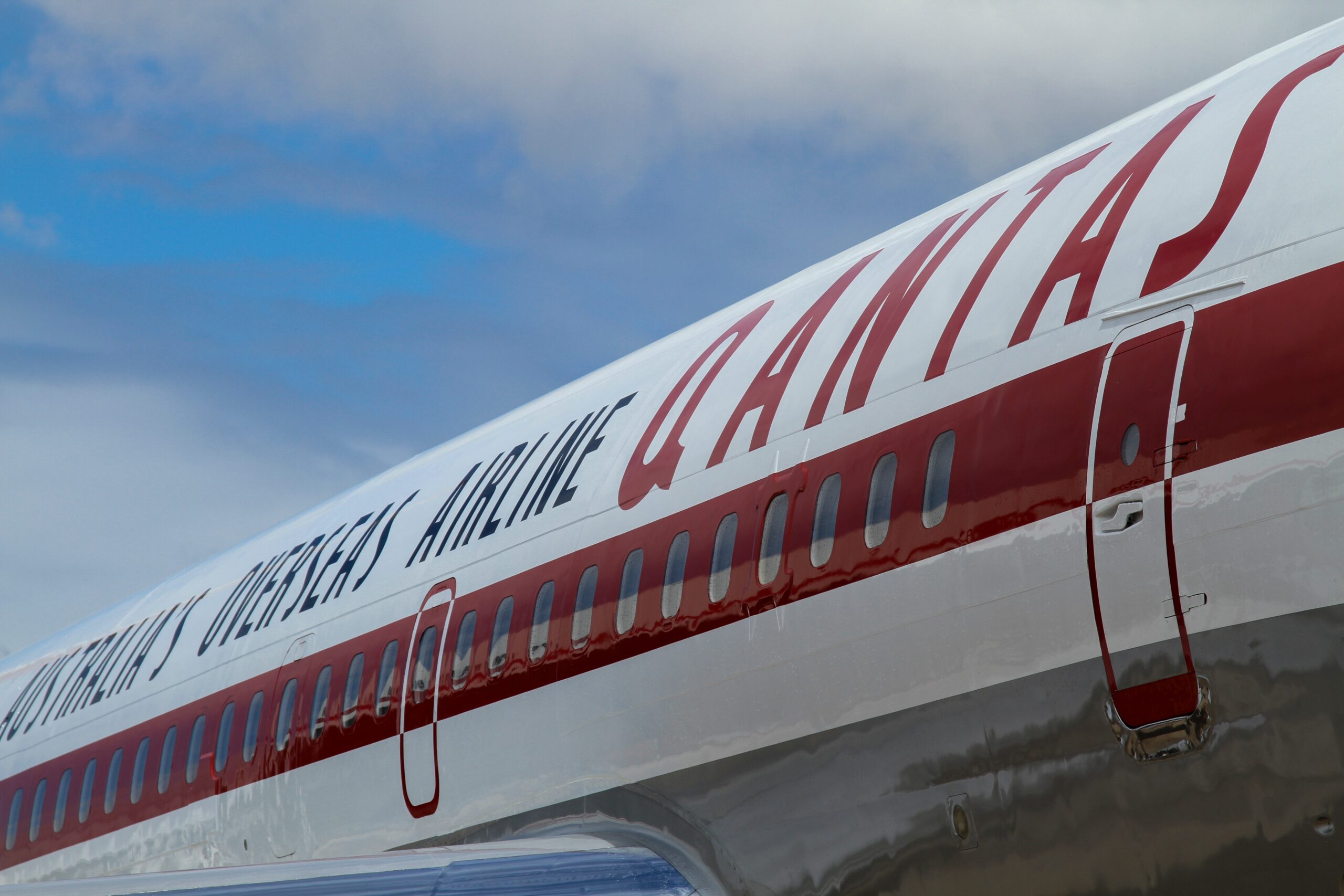
When you board an aeroplane for a long flight, you find your seat, fasten your seat belt, and relax. You assume that the people sitting at the front of the plane in the cockpit – the captain and co-pilot – are fully trained and experienced. You also assume that the aircraft you are sitting in is well maintained and has enough fuel to carry you to your destination. What would you think if the captain of this plane announced to the passengers before taking off saying, “Ladies and gentlemen, welcome aboard. Our flight today will take 15 hours. Ten per cent of the fuel has been made from mustard seed.” Would you get off the plane as quickly as you could?
Not long ago, an aeroplane belonging to the Australian airline Qantas completed the world’s first biofuel flight between Los Angeles and Melbourne. Biofuel is fuel that has been made from a sustainable source such as plant seed, not from fossil-based fuel such as petroleum.
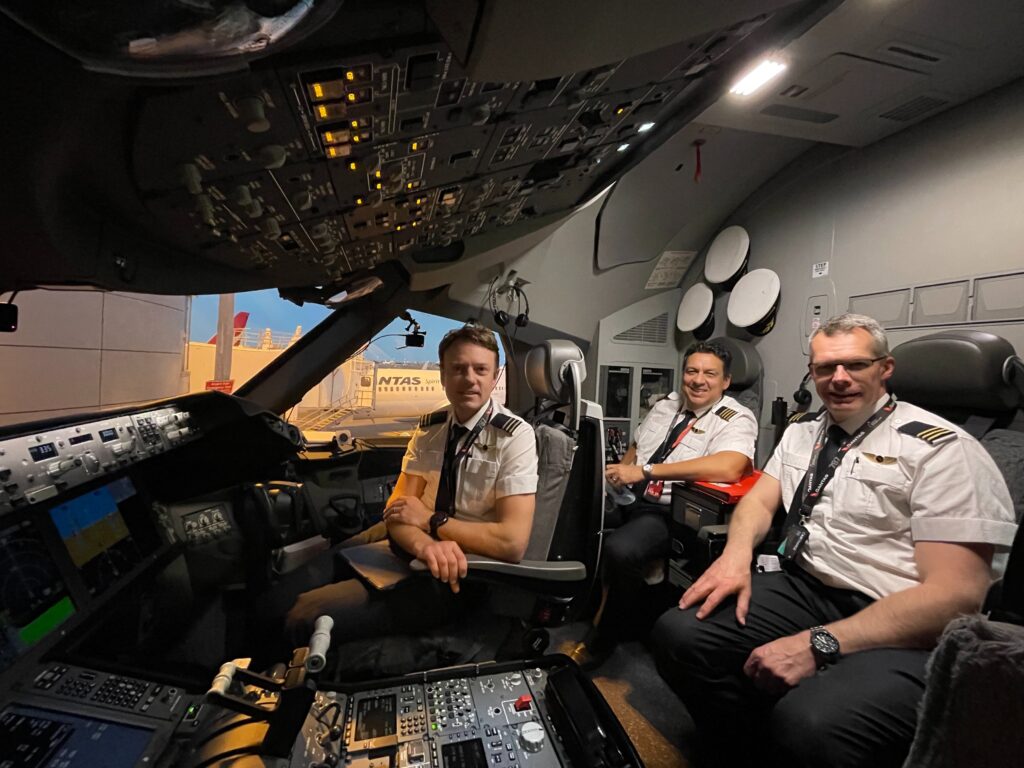
The 15-hour flight on a Boeing Dreamliner 787-9 required 24,000 kilos of fuel. 10 per cent of it had been extracted from mustard seed.
This is not the kind of mustard seed that makes the yellow mustard we eat with a hot dog. It’s a different kind of seed. It’s called Brassica Carinata. You cannot eat it. However, a 10,000 square metre field of Brassica Carinata can produce 400 litres of fuel that can be mixed and used with aviation fuel.
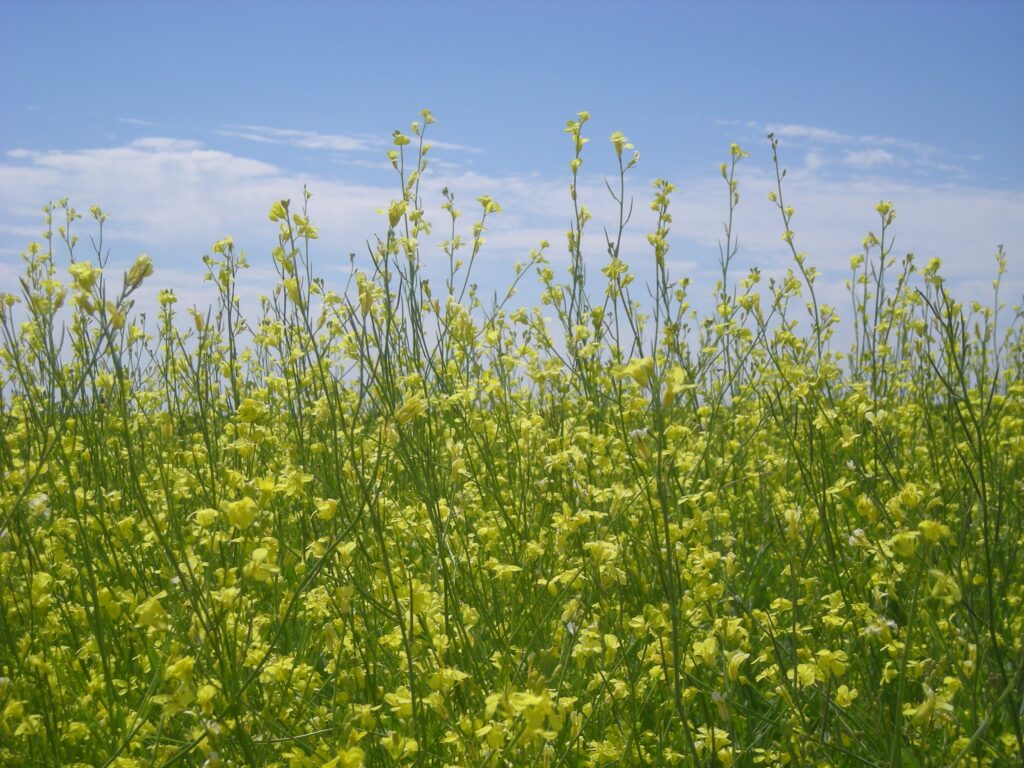
Brassica Carinata is cheap to produce and does not require much water. It grows very easily in places where other crops cannot. Once grown, the seeds are pressed, and the oil is extracted. It produces half its weight in oil. This means that if you press 100 kilos of seed, 50 kilos of oil can be extracted. What is left of the seeds can be used to feed farm animals. There is zero waste.
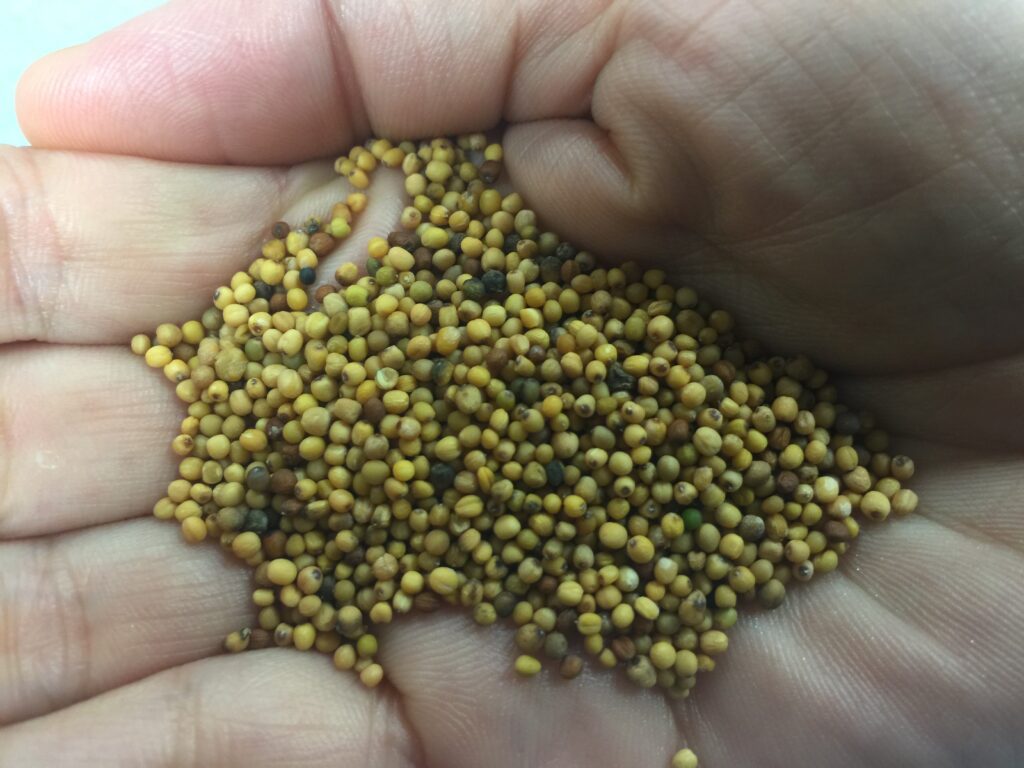
Since then, a number of other international airlines have been working on developing other kinds of biofuel, most of them successfully. By 2050, scientists believe it will be possible to fly an aeroplane using 100 percent biofuel.
Question:
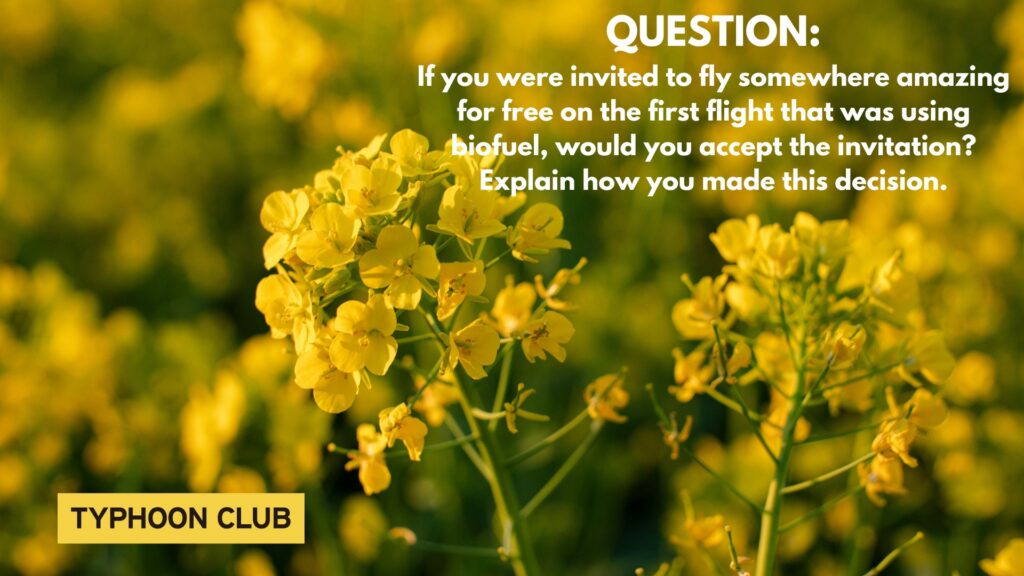
Etihad Airways based in the Middle East, has also been researching what biofuels it may be able to use in the future.
VOCABULARY
